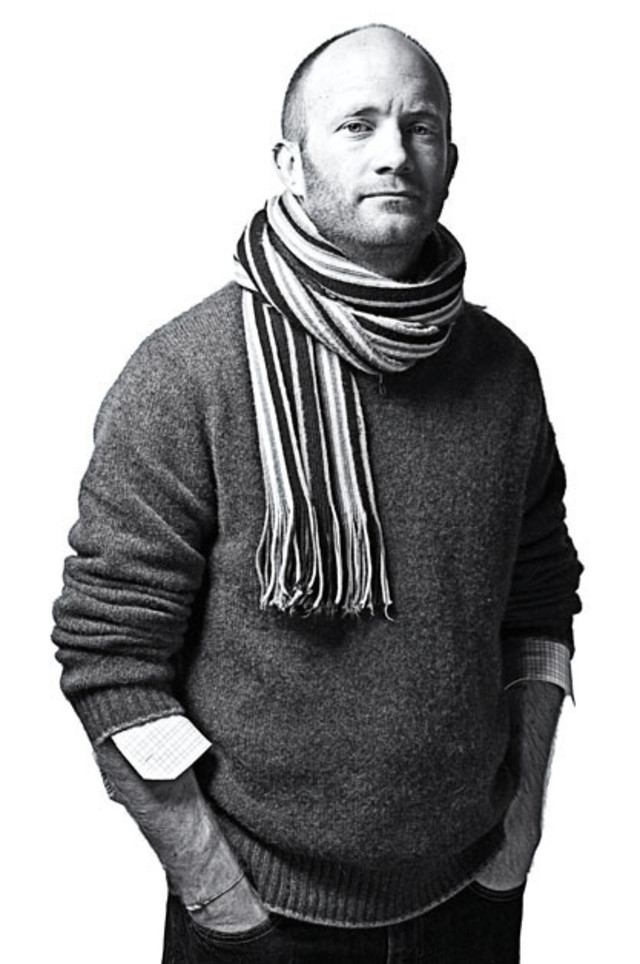Taking the Start-Up Scene from PDX to Gaza

Image: Michael Schmitt
After an Israeli security detail boarded his plane on the runway after an overnight flight from Newark to Tel Aviv, Portland investor and start-up guru Tom Sperry blearily watched Mossad officers, in their trademark dark suits, sort passengers at the door. Then, as the agents led him to an awaiting car, Sperry quipped, “Guess I’m the VIP today.”
“Very VIP,” replied a guy wearing an earpiece.
Ten hours and two interrogations later (the repeated question, which he declined to answer: “Who are you meeting with in Qatar?”), Sperry emerged, with no charges against him. Such is life when you do business in occupied Gaza. Sperry works with Mercy Corps to nurture start-ups in the territory of 1.7 million, where youth unemployment approaches 40 percent. (Sperry says American officials told him that meetings in Qatar’s capital, Doha, regarding Gaza investment may have piqued Israeli curiosity.) He considers the inconvenience worth it. Most days, Sperry works as the cofounder and point man for the equity fund Rogue Venture Partners. “I help entrepreneurs,” the 41-year-old says. “It’s how I make my money, but it’s also my passion.”
With a day of meetings missed, Sperry flew to Jordan, then to Chicago, where he ran a marathon in 4:09—his fastest time ever.
Ears multiply pierced, arms tattooed with poem fragments (Frost’s “The Road Not Taken,” Kipling’s “If”), and scarves often wrapped keffiyeh-style, Sperry stands out in Portland’s investment world, to say nothing of Dunthorpe, the mansion-lined Southwest Portland neighborhood where he lives with his two daughters and wife, Christi, a pediatric audiologist.
“Tom’s very driven,” says Rick Turoczy, editor of the tech blog Silicon Florist. “It’s always like, ‘Hey, I’ve got to meet this week, because next week I’m going to climb Kilimanjaro.’”
That globe-trotting gusto unites his work in Oregon and Gaza. Both, he says, are home to tons of entrepreneurial talent, and both are starved for investment. To each, he brings a tough-love approach investors like and talent needs to hear.
Born in Connecticut and educated at boarding schools, Sperry began as a 20-year-old Microsoft intern, then launched video games across Europe and Japan. He skipped the undergraduate experience entirely but got an executive MBA at the Hong Kong branch of Canada’s Ivey School of Business. More globe-hopping followed, as Sperry moved between companies and venture firms in Orange County, Germany, San Francisco, and Shanghai before settling in Portland in 2011. (His wife is a native Northwesterner.) He started Rogue in 2012 with a formidable trio: Rick Miller and Rick Dillon, cofounders of nursing home giant Avamere, and John Stirek, president of western operations and capital markets for Trammell Crow, one of the country’s largest real estate developers.
In Oregon, the partners saw potent opportunity: abundant talent in an environment much cheaper than rival hubs like Seattle and San Francisco. And they identified a classic “pain point”: a dearth of venture capital. Sperry now acts as the group’s acupuncture needle. “You get approached by a lot of people,” says Stirek. “Tom is a very intellectually pure thinker. If they don’t pass his test, they won’t pass ours.”
So far, Rogue has invested “north of $10 million,” according to Sperry, in 14 start-ups. “Rogue feeds the top of the funnel,” says Diane Fraiman, partner at Voyager Capital, one of the Northwest’s leading venture funds. The recession and the “generationing out” of older investors who emerged from Tektronix and Mentor Graphics left an early-funding void, she says. Fraiman and others also note that Rogue’s money comes with Sperry’s mentorship: “the coaching of entrepreneurs to not only build something, but put a marketing plan together and build a team,” she says.
On a recent afternoon, Sperry spent two hours with two freshly graduated UO business majors pitching a craft ketchup company, and he brought along a food-distribution veteran, Sunshine Dairy CEO Dirk Davis. After the grads squirmed under rapid-fire questions, Sperry concluded plainly, “The most valuable thing I gave you today is your connection to Dirk.”
At the other end of the spectrum, Rogue led the first funding round for AppThwack a year ago. Founded by two former Intel engineers to test apps on a variety of mobile platforms, the company just moved into a downtown office. As cofounder Pawel Wojnarowicz offered a tour of its “device lab”—wired with hundreds of mobile phones—he recalled the first “rough conversation” with Sperry.
“We had a really solid technology, but zero idea how to sell it,” he says. “He got us to focus on one audience at a time.” Besides investing Rogue’s money, Sperry joined Wojnarowicz and Trent Peterson as the firm’s third board member.
In 2000, Sperry spent a two-month “sabbatical” living in an orphanage in Chennai, India. “I quickly learned the difference between need and want,” he says. “These kids had nothing. When they got their plate of food, they served me first. It’s stunning how they measure happiness. Writing a check is easy. For me, business has become about giving time, energy, and talent.”
In the fall of 2012, that impulse led Sperry to an evening rendezvous at Kells with Aleksandar Milutinovic, then head of a new Mercy Corps effort to seed Middle East start-ups. The region brims with young people schooled in computer engineering who lack business experience and connections. A few months later, Sperry traveled to the West Bank (that time, unhindered by Mossad) to help Milutinovic’s successor, John Ross, jump-start Gaza Sky Geeks, a start-up accelerator not unlike Wieden & Kennedy’s Portland Incubator Experiment.
Sperry helped shape Sky Geeks’ strategy, advised start-ups, and accompanied Ross on visits to investors in Amman, Doha, and Cairo. Sperry also brought Sky Geeks’ 26-year-old director, Reem Omran, to tour Portland’s start-up scene. “It’s hard to imagine larger markets when you’ve never left Gaza,” she says. “People think that they can do anything. They don’t really focus. That’s what Tom brings: focus, focus, focus.”
Mercy Corps’s Ross is working to replicate the Sky Geeks model in Tunisia and Iraq. Sperry, he says, gives the experiment credibility at Mercy Corps, an organization traditionally concerned with the “bottom of the pyramid” rather than well-educated, upper-middle-class young people.
“I don’t have a big enough ego to think I’m contributing to a solution,” Sperry says of his work in the Mideast. He describes himself as “apolitical,” adding that had his first Mercy Corps meeting focused on Africa, he could be working there. To him, entrepreneurs make a way of life. “If you can wake up, feed your family, maybe employ some people, that is pretty exciting,” he says. “Maybe hope and opportunity keep you from blowing up a bus. I can be part of that all day.”




